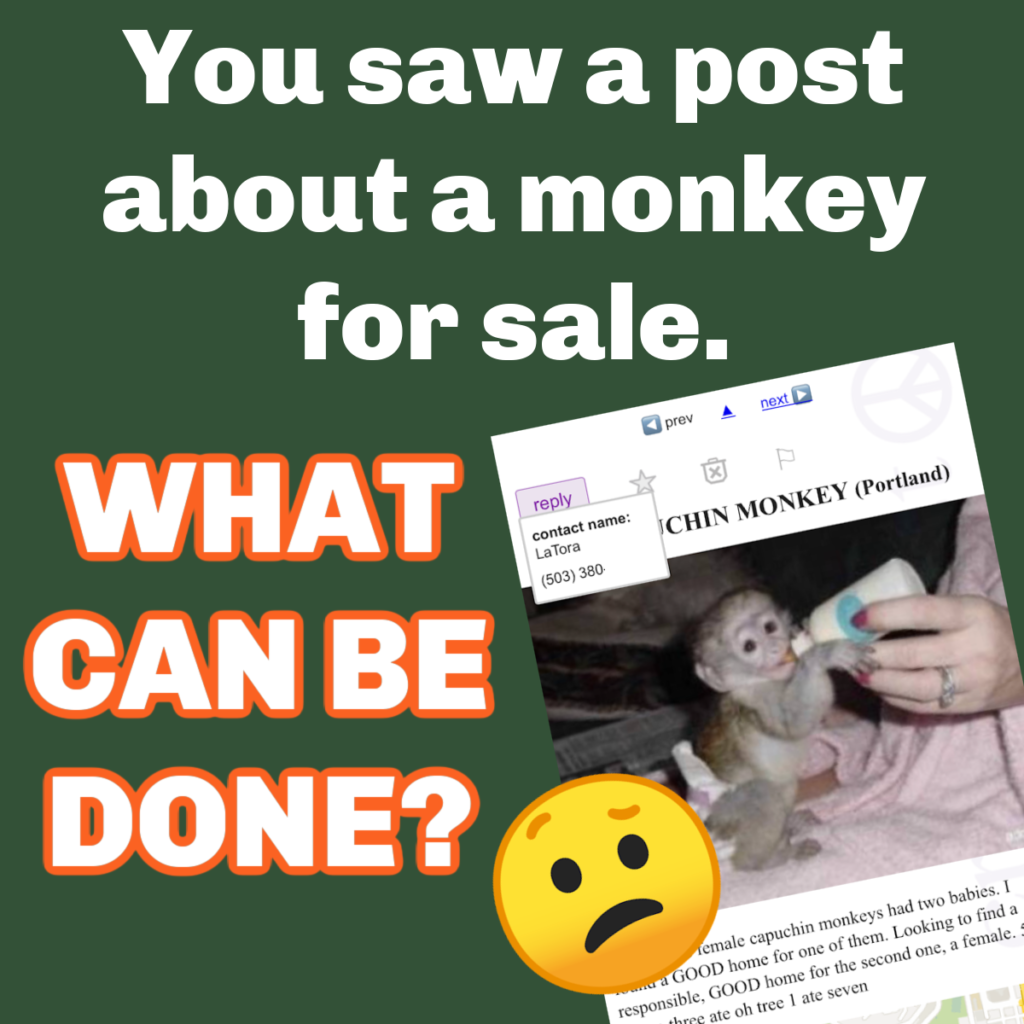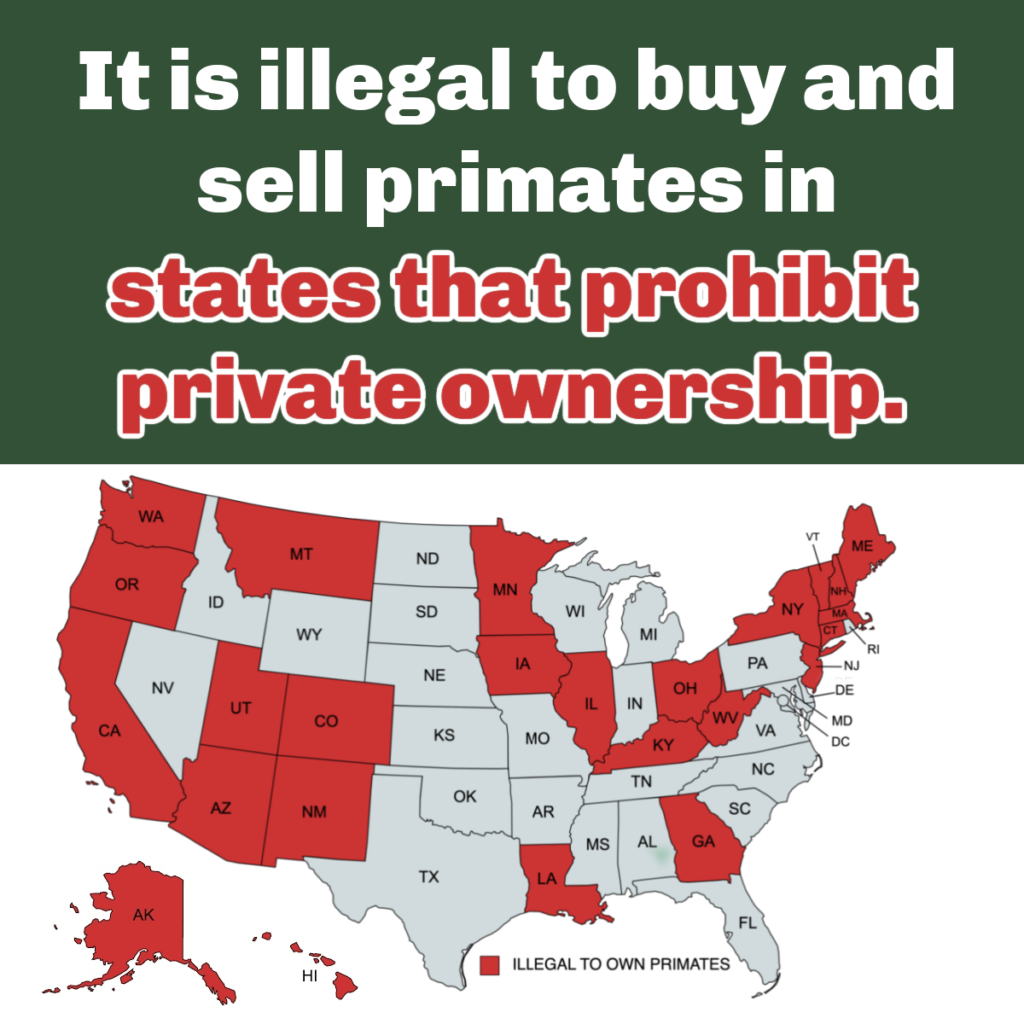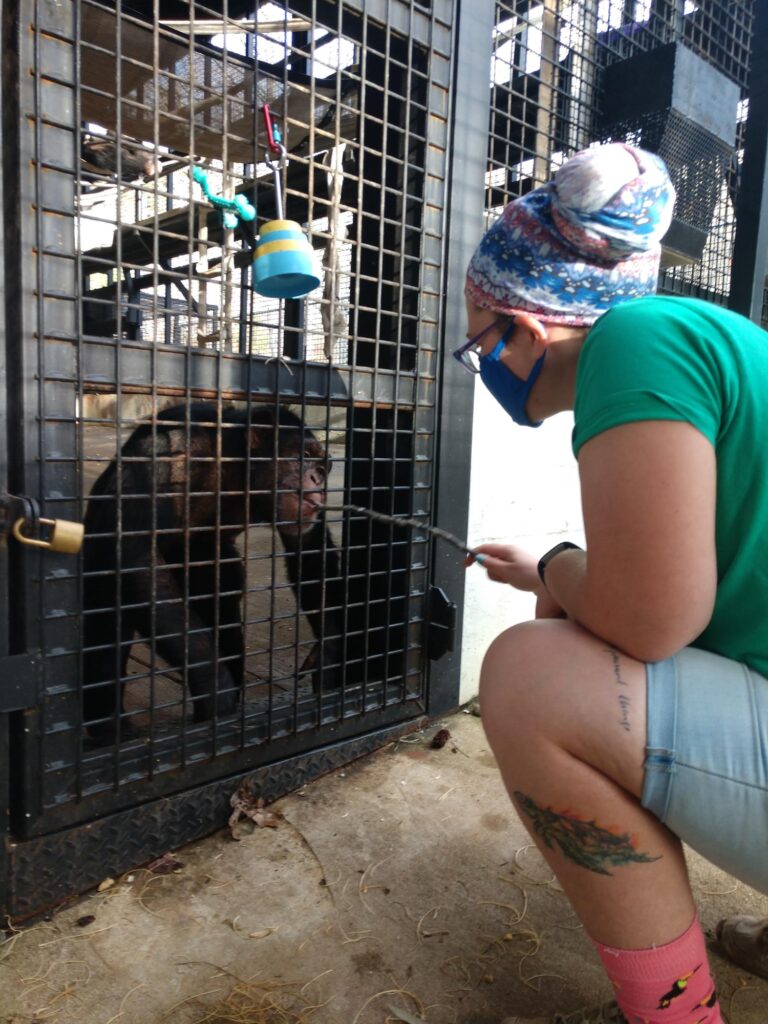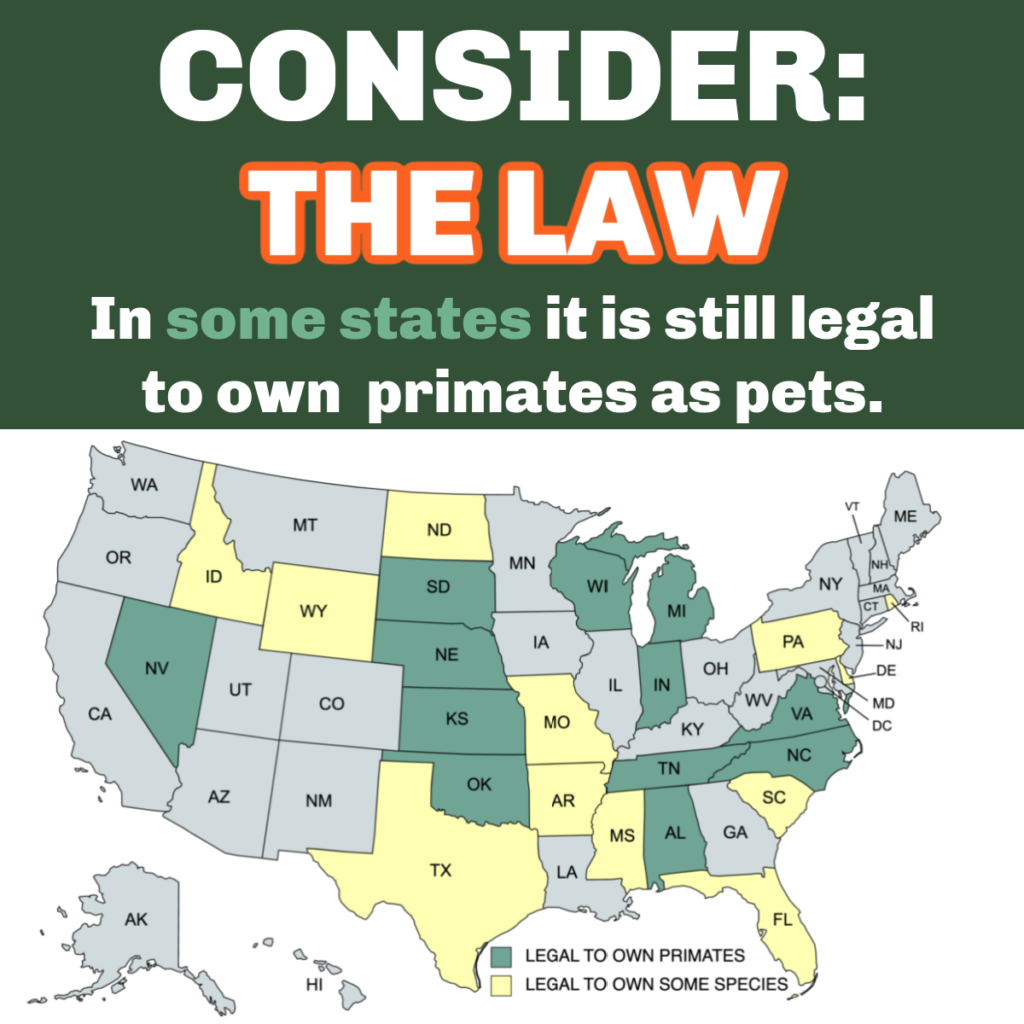
Stop Keeping Pet Chimps

By Kat West
We can all agree that chimps are cute. But we also know they are wild animals and shouldn’t be kept as pets. Not everyone understands this, however. Although it’s illegal in many countries like the U.K. it is still legal in the United States. The Captive Primate Safety act aims to change this. Let’s learn about the plight of pet chimps and meet Noel. Noel is one of our chimps who lived as a pet before being sold to a lab.

The Plight of Pet Chimps
It is illegal to import primates into the U.S. for the pet trade, that means chimps in America are born in captivity. These infant chimps are taken from their mothers before they are even properly weaned. Chimps in the wild have long childhoods where they learn the social skills they need to fit into a chimpanzee group. Pet chimps are raised by humans in houses that do not provide any kind of species appropriate development.
When pet chimps reach adolescence at 5 to 8 years old, they start to realize their strength. A chimp can never be happy in a house because it does not provide enough space or appropriate stimulation to keep them happy and healthy. In the wild they have active social lives with other chimps; a pet chimp can never have these experiences replicated for them.
If an owner decides they can no longer keep their pet chimp they often run into problems. Sanctuaries are often full and accredited zoos will not take pet chimps because they lack the social skills to integrate with a group. This means many pet chimps end up in roadside zoos or at unaccredited refuges. Of course, the worst possible scenario is that a chimp may attack someone, and first responders must put it down. This means danger and injury to humans and death for the chimp who was acting in a way that was natural for its species.
Meet Noel
Noel is a resident at Project Chimps. Like all the residents Noel is retired from biomedical research, but before she was sold to a lab, she lived the early years of her life as a pet. She was born in 2006 and finally found sanctuary at Project Chimps in 2017. Unlike many former pet chimps Noel has integrated into her new chimp family according to caregiver Kailie Dombrausky. However, she still has behaviors from her past living in a house.

Noel is very human focused, says Kailie, and she will emphasize paying attention to humans over interacting with other chimps. Happily, Noel does have chimp friends even if she doesn’t have a bestie. Noel’s outgoing personality and brave nature have surely helped her to integrate with the other chimps. Noel is so brave that she was one of the first chimps at Project Chimps to climb a tree! That’s a big feat for a chimp raised in a home and a lab, but Noel loves it and continues to climb trees at Project Chimps to this day.
The Captive Primate Safety Act
Many pet chimps are not as lucky as Noel and do not find a safe sanctuary to live in. There are also risks to human health not just from inevitable attacks but also from the spread of diseases. It is unsafe for both people and chimps to keep chimps as pets. The Captive Primate Safety Act would make private ownership of nonhuman primates, including chimps, illegal in the U.S. and would stop interstate commerce for the pet trade. This bill would protect not only chimps but other primates as well.

If your state is Green or Yellow, send a message to your members of congress and urge them to support the Captive Primate Safety Act today!
And look up your state to see more details about where they stand on great apes as pets to take additional action!

